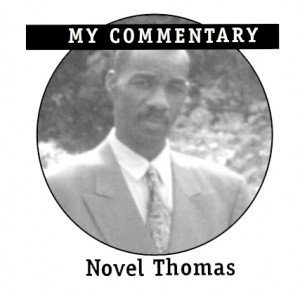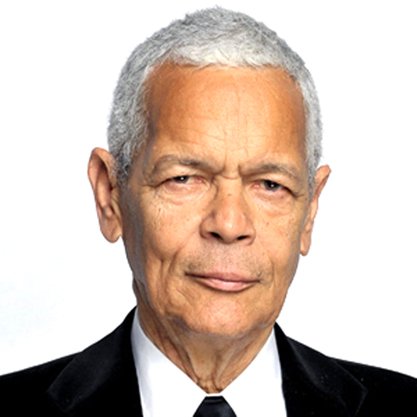Remembering Julian Bond
Hero and c harismatic are two of many descriptions encapsulating the life and times of 1960s U.S. civil rights activist Julian Bond. He died the night of Saturday, August 15, after a short illness triggered by complications of vascular disease, according to a statement released by the Southern Poverty Law Center (SPLC), which he served as president from its founding in 1971 to 1979. He was 75.
harismatic are two of many descriptions encapsulating the life and times of 1960s U.S. civil rights activist Julian Bond. He died the night of Saturday, August 15, after a short illness triggered by complications of vascular disease, according to a statement released by the Southern Poverty Law Center (SPLC), which he served as president from its founding in 1971 to 1979. He was 75.
Born in Nashville, Tennessee in 1940, Julian Bond became involved in the civil rights movement at a very young age in the 1960s, and throughout his lifetime, his commitment to Black Americans struggle for human and civil rights was unwavering.
As a Morehouse College student, Bond helped found the Student Non-Violent Coordinating Committee (SNCC). In his role as communications director he was on the front lines of ongoing protests that eventually led to the implementation of the U.S. landmark civil rights laws.
Along his human rights trajectory, Bond gradually moved from the militancy of the student group to the leadership of the historic National Association for the Advancement of Colored People (NAACP), taking over as chairman in 1998, and serving until 2010.
His activism logically extended to other important issues of the day; he was described as “a lightning rod of the anti-Vietnam War.”
Driven by his conviction that “all rights are human rights” Bond saw no distinction in social justice causes, and was also an advocate of gay and transgender rights. He was an outspoken supporter of the rights of gays and lesbians; he publicly stated his support for same-sex marriage. He most notably boycotted the funeral services for Coretta Scott King on the grounds that the King children had chosen an anti-gay ‘megachurch’ as the venue. This was in conflict with their mother’s longstanding support for the rights of gay and lesbian people.
Julian Bond’s life of public service also included a lengthy political career; he was elected to the Georgia House of Representatives in 1965 and served for 20 years in the Georgia General Assembly. He also served several years in the Georgia Senate.
In 1968, Bond led a delegation to the Democratic National Convention and became the first Black American to be nominated for vice president, but was forced to withdraw because he was “too young.”
Along the way, Julian Bond was also a teacher and lecturer at several colleges and universities, as well as a writer and television commentator. He hosted the television show America’s Black Forum from 1980 to 1997, and narrated Eyes on the Prize, an award-winning television series and documentary highlighting the life of African Americans so far.
Among the many paying tribute to the life and times of Julian Bond was President Barack Obama who said Bond was “a hero and friend” and that he and first lady Michelle had benefited from Bond’s example, counsel and friendship…He helped change America. What better way to be remembered than that…”
Political stalwart and longtime civil rights activist, John Lewis, who worked closely with Bond to help found the Southern Poverty Law Center (SPLC), as well as helped to change voting rights laws and urging people to register to vote throughout the South, in remembering his colleague said, “He spent so much time speaking on college campuses, telling the story of the movement. He was so smart, so gifted, so articulate and he had a way of getting to people, to students, to young people […] He helped inspire an entire generation of young people, students, black and white…”
Jesse Jackson, founder and president of the Rainbow PUSH Coalition, said Julian Bond “became our version of Nelson Mandela…”
Morris Dees, the SPLC’s co-founder, commented that Julian Bond was a “visionary” and “tireless champion” for civil and human rights.
“With Julian’s passing, the country has lost one of its most passionate and eloquent voices for the cause of justice…”












